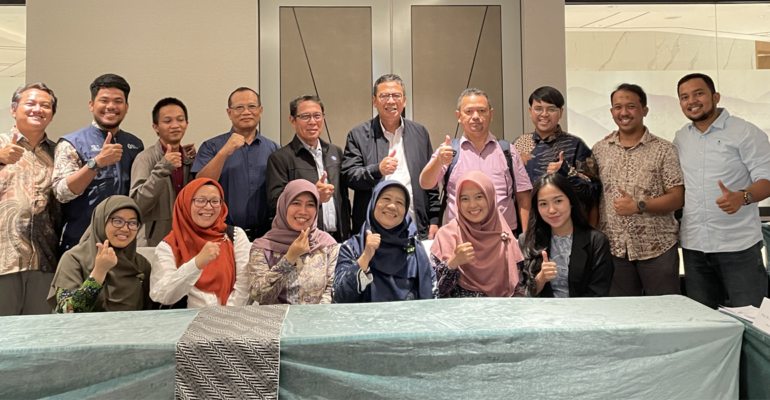IPB University in collaboration with the Bappenas and UNEP, held the 2nd Stakeholder Meeting for TEEB AgriFood Indonesia

IPB University, in collaboration with the Faculty of Economics and Management (FEM), partnered with the National Development Planning Agency (Bappenas) and The United Nations Environment Programme (UNEP) to hold the 2nd Stakeholder Meeting for TEEB AgriFood Indonesia.
The event aimed to present the initial findings of the TEEB AgriFood Indonesia project for the coffee commodity to stakeholders. This step aimed to gather perspectives, input, and constructive evaluations for the advancement and sustainability of the coffee commodity in Indonesia.
Prof R Nunung Nuryartono, the Chairman of the TEEB AgriFood Indonesia Team, stated that coffee is an essential commodity that is growing in rural communities. Based on the recent development of the coffee industry, consumer demand for coffee has increased, as evidenced by the emergence of numerous cafes in every corner of the city.
“This indicates that the coffee commodity contributes to the economic development of society,” said Prof Nunung, who is also a Professor at IPB University.
He added that the development of the coffee commodity currently faces several challenges, one of which is related to the EU Deforestation-free Regulation (EUDR), which will impact producers at the upstream level, namely coffee farmers.
“Through the research study of TEEB AgriFood Indonesia, we hope to provide an overview of crucial aspects that serve as the foundation for the EUDR, such as legality, traceability, and sustainability,” he explained.
Director of Food and Agriculture at Bappenas, Ir R Anang Noegroho Setyo Moeljono, MEM, welcomed this collaborative project. In his statement, he expressed his support for TEEB AgriFood Indonesia.
“Bappenas RI will continue to support the research study of TEEB AgriFood Indonesia, which in this case focuses on the coffee commodity. The implementation of the TEEB AgriFood activities is very beneficial, especially in supporting the upcoming National Medium-Term Development Plan (RPJMN),” he said.
According to Dr Barlev Nico Marhehe, a representative of UNEP Indonesia, TEEB Agrifood is one of the three main activities in the field of food and agriculture currently being developed. On this occasion, UNEP strongly supports the implementation of TEEB Agrifood Indonesia.
“Thanks to Bappenas and IPB University for the excellent cooperation, which allows us to enter the second series of developing the coffee commodity. Previously, a study focus was also conducted on the cocoa commodity,” said Dr Barlev Nico.
He hoped that this meeting could provide an overview for the global TEEB symposium in early November and contribute to the future improvement of community welfare. (*/Rz) (IAAS/Hap)



